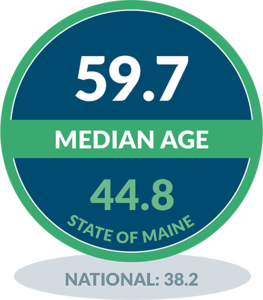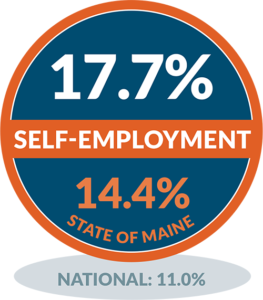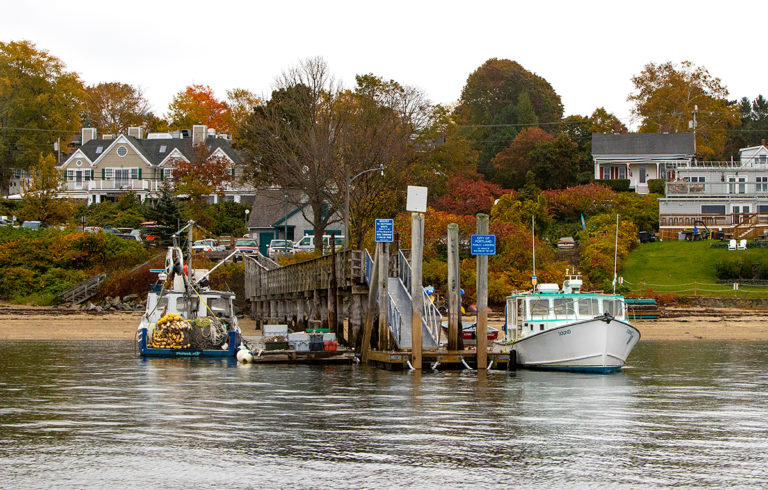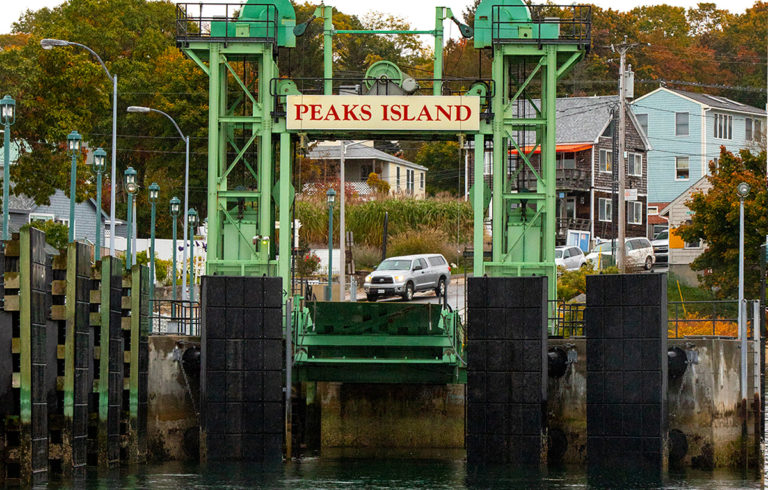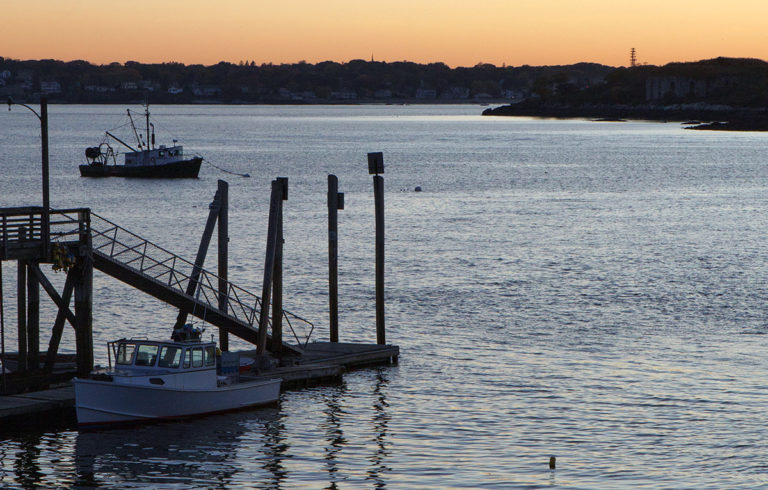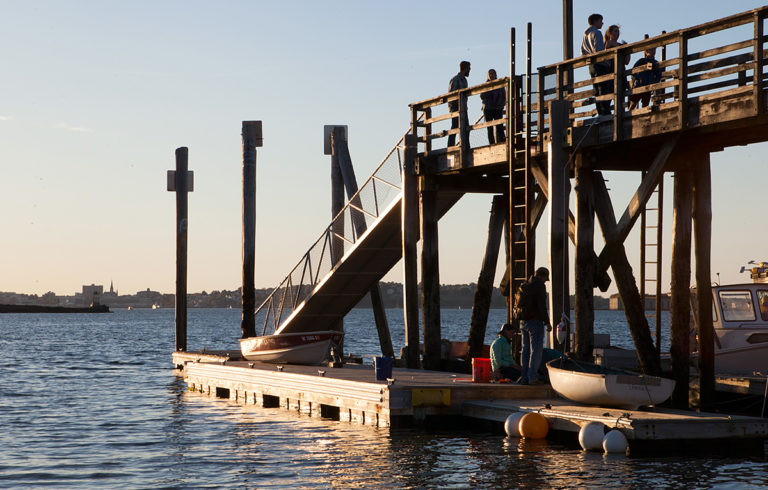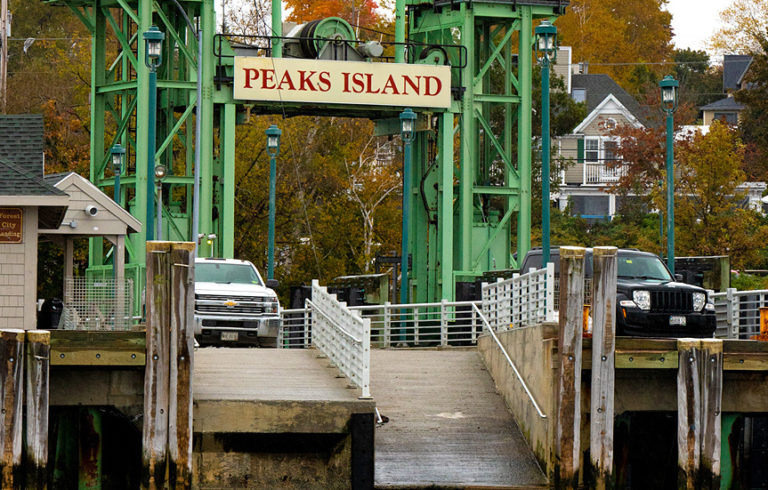This page was published in 2022. Please be aware that some data and other information on this page may no longer be accurate.
QUICK FACTS
Three miles out in Casco Bay surrounded by water is a 762-acre neighborhood of Portland. Peaks Island is the traditional territory of the Wabanaki, and was colonized by Europeans in the 1600s. By 1880, it became the “Coney Island of Maine,” visited by tourists from all over the world, and was a military reservation in World War II.
Today, Peaks has a vibrant year-round community of over 900 people. Popular with visitors, the island grows to a few thousand in the summer. Most undeveloped land is owned by the city, state, or a land preserve. While the island has attempted to become an independent town six times throughout its history, it is currently still part of the City of Portland. In 2007, the Portland City Council authorized the creation of the elected Peaks Island Council to advise the city on island matters.
COMMUNITY HIGHLIGHTS
- Peaks Island Land Preserve
- Sandy Beach, Cairn Beach, & Centennial Beach
- Annual PeaksFest weekend
- Battery Steele (WWII gun battery)
- 8th Maine Regiment Memorial Lodge & Museum
- 5th Maine Regiment Museum
- Umbrella Cover Museum
- The Backshore Preserve
- Illustration Institute

ECONOMY
Many residents commute to work in Portland, and mainlanders travel to Peaks for work. A variety of island- based businesses serve year-round and seasonal residents, including a grocery store, health center, gas station, a few bars and restaurants, and a taxi. Over 30 non-profits call the island home, and there is limited fishing and aquaculture. Tourist services include various rentals and shops, as well as island tours.
SCHOOL SYSTEM
Part of Portland Public Schools, Peaks Island Elementary operates in an historic 1869 building serving Grades K-5. Grade 6–12 students commute to the mainland. School programming makes the most of the natural resources and unique opportunities afforded by life on Peaks—the island is the classroom.

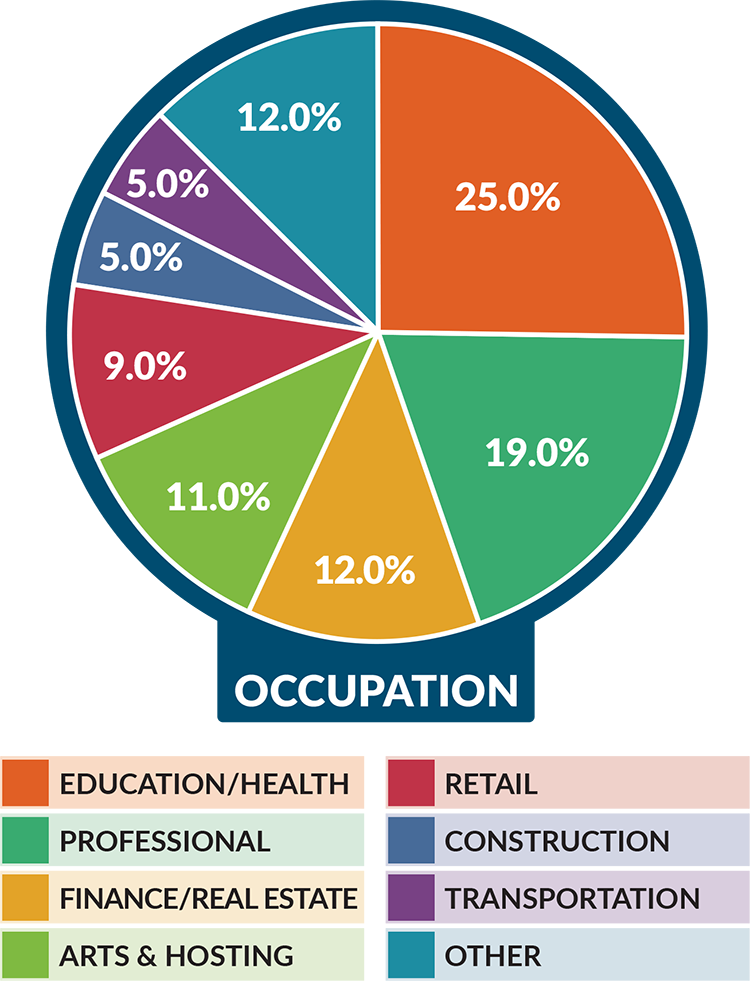
LOCAL INFRASTRUCTURE
PUBLIC SERVICES
The City of Portland provides police, fire, emergency medical, and snowplowing services, and operates the transfer station with trash and recycling pickup. The post office delivers door-to-door and provides a package delivery service. Water and electricity come from the mainland through pipes and cables under the bay, although much of the island only receives public water during the late spring through early fall. One public dock is available. Locally, the New Brackett Church operates a food pantry and the community supports a childcare center.
PEAKS ISLAND HEALTH CENTER
The health center offers limited healthcare services in a clinic facility, provided by Maine Medical Partners Family Medicine. Staff include a nurse practitioner and assistants. The center also sponsors health education events.
Peaks Island Radio 1700 AM is a local free-form broadcaster, airing local news, information, comedy, interviews, events, arts, and an eclectic blend of music. Its diverse programming seeks to represent the island’s culture, and is also available online.
Peaks Island Council
This elected seven-member board keeps Portland City Council and city staff apprised of issues related to the neighborhood of Peaks Island. The council identifies, evaluates, and addresses such concerns as mainland parking, ferry service and transportation, environment and sustainability, housing, and social services. The council also provides funding for island organizations and special projects.
Arts
Peaks has a long and storied history of being a welcoming community for theater, for artists, and for musicians alike. Historic venues around the island host a wide variety of performances throughout the year, including beloved community choruses, exhibitions, ensembles, and an annual variety show.
How to get there
Peaks Island is served by Casco Bay Lines, departing from 56 Commercial Street in Portland, and has the only ferry service in the bay transporting vehicles and people. There are more than a dozen daily departures, and the trip usually takes 17 minutes each way. Tickets are purchased on the Portland side only. Note that schedules and prices vary by season. Boat capacity depends on which ferry is running; maximum is 400 passengers and 13 cars. Summer boats occasionally fill to capacity in both directions, with heavy congestion on the ferry landing, so travel can be challenging and requires planning ahead. Private water taxis are also available.
FORE MORE DATA ON MAINE’S ISLAND AND COASTAL COMMUNITIES VISIT:
www.islandinstitute.org/waypoints
FOR DATA QUESTIONS, CONTACT:
info@islandinstitute.org
With gratitude to our community reviewers: Michelle Brown, Ellen Mahoney, Peter McLaughlin, and Faith York

